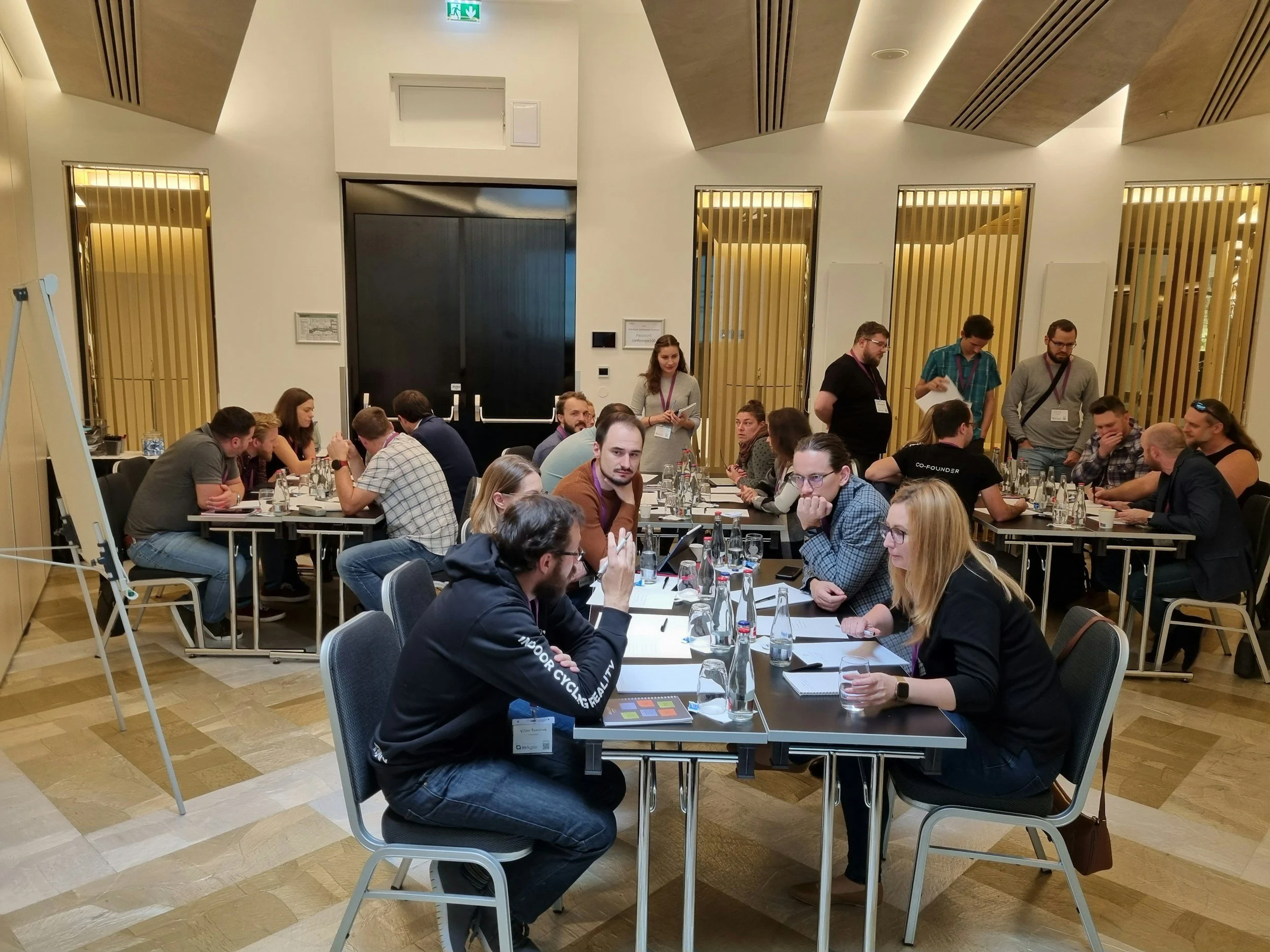
Learning the Human Way
AI changes so fast it's hard to know where to start. The best way? Together, real people, real conversations, real problems to solve.

Our Approach
Our dual-facilitator approach pairs people with tech skills and people skills because few humans are equally good at both. While one person leads the learning, the other captures what the group really needs and how people actually learn AI. This data helps us improve our approach and gives community leaders real insights about AI adoption challenges.
Our approach is grounded in group coaching methodology, which recognizes that people learn technical skills more effectively through structured peer interaction than traditional lecture formats. We've adapted group coaching principles specifically for AI skill development, using dual facilitators and ethnographic data collection to ensure both learning effectiveness and continuous program improvement.
Small Groups, Real Conversations
Everyone gets to talk, not just listen. We keep groups small so every voice matters.
Start Where You Are
Total beginner or already experimenting, both are welcome. We meet you where you are.
Learn by Doing
Practical skills you can use today, not abstract theory. We focus on real problems.
Pass It On
When you figure something out, you help the next person. Learning by teaching.
What Makes This Different
-

It's Actually Free
Not a trial. Not freemium. Just free. Essential skills shouldn't require a credit card.
-

No Know-It-All Instructors
Facilitators learn alongside you. We're all figuring this out together.
-

Tool Agnostic
We focus on solving real problems, not pushing specific tools or platforms.
-

Human-Sized Learning
From "I have no idea" to "I can do one useful thing." Then build from there.
The Learning Lab Component
Every session generates data about real AI learning needs. Our facilitator pairs use simple ethnographic tools to capture insights about barriers, preferences, and gaps that surveys miss. This research informs community leaders, policymakers, and organizations about what people actually need (not what experts assume they need).
Ready to Try It?
If learning with people sounds better than struggling alone, come join us.




